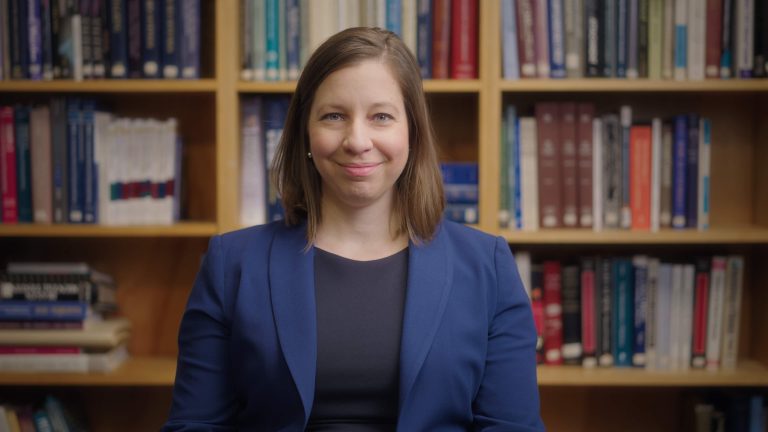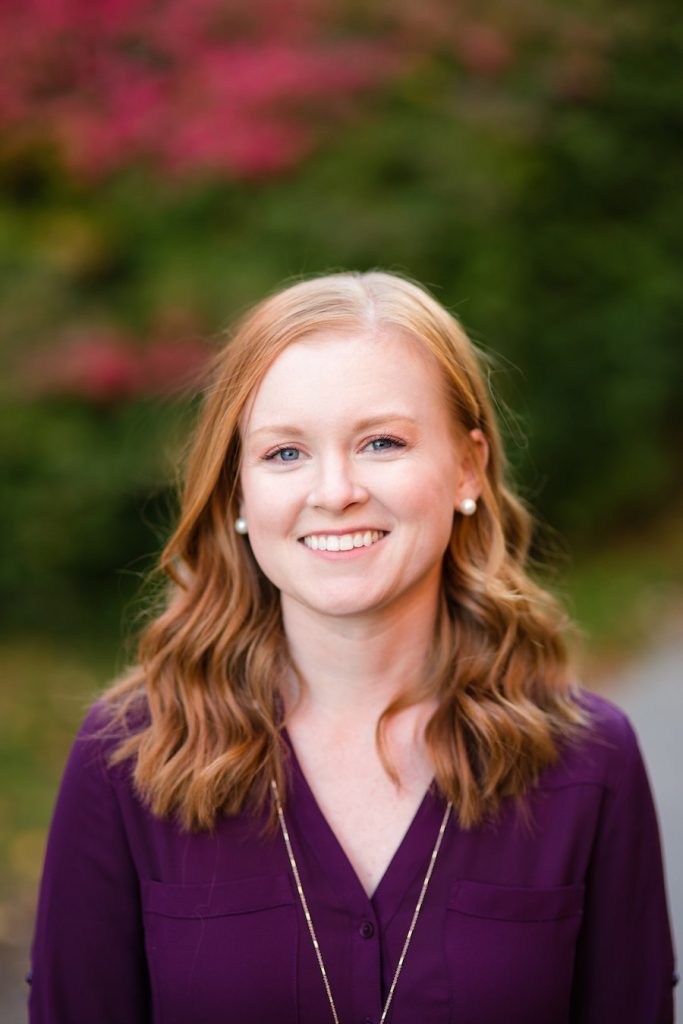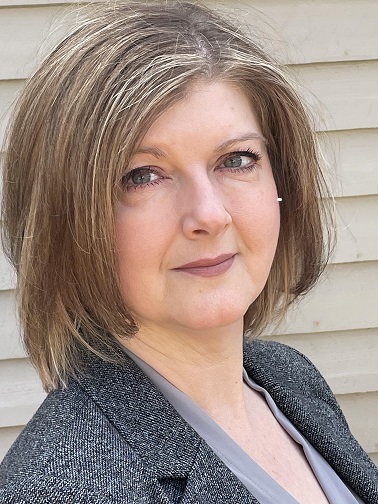Core Faculty

Sarah Miller, Ph.D., ABPP
Fellowship Training Director
Sarah Miller (she/her) is the Director of the State Forensic Service. She oversees all clinical and administrative functions of the Service, and she provides regular consultation to examiners, attorneys, judges, and others. She conducts criminal forensic mental health evaluations and has testified in more than 80 cases across Massachusetts, Maine, and United States District Court for the District of Maine. She provides training locally on Maine’s forensic system for mental health and legal professionals. As Training Director of the fellowship program, she supervises Fellows, oversees the didactic training, and coordinates administration of the program with the University. Prior to her current role, Dr. Miller spent 9 years working in state, federal, and local correctional facilities. While working with the healthcare team in the Maine Department of Corrections, she helped facilitate the integration of mental health and substance use disorder services, providing administrative and clinical oversight for approximately 50 behavioral health staff. She also provided consultation locally and nationally on the assessment and management of transgender residents in correctional facilities.
Dr. Miller is board certified in forensic psychology by the American Board of Professional Psychology. She is an active member of the American Psychology-Law Society and American Academy of Forensic Psychology. She was previously Vice Chair of the Forensic Division Council (2022-2024) for the National Association of State Mental Health Program Directors. She earned her MA and PhD in Clinical Psychology from the University of Alabama with a concentration in Psychology and Law. She completed her postdoctoral fellowship in forensic psychology at the University of Massachusetts Medical School.

Jeffrey Hecker, Ph.D.
Fellowship Program Coordinator
Jeffrey Hecker (he/him) is Professor of Psychology at the University of Maine. Dr. Hecker was in the first cohort of psychologists to contract with the State Forensic Service in the 1980s. Between 1988 and 2007, he conducted well over 100 court-ordered evaluations for the service. Dr. Hecker renewed his contract in 2021and is an active SFS examiner. Dr. Hecker’s clinical research has focused on anxiety disorders, juvenile sexual offending, and rural mental health. He is the author of two books and over 50 additional scholarly publications. Dr. Hecker has extensive experience in higher education leadership having served as Department Chair, Dean, Executive Vice President for Academic Affairs & Provost, and Senior Advisor to the President, all at UMaine. As Provost, he was responsible for all of the university’s research and academic programs and managed a budget of over $250 million. Currently, in addition to his work with the Forensic Psychology Postdoctoral Fellowship, Dr. Hecker serves as Director of Clinical Training for the Doctoral Program in Clinical Psychology and Co-Director of the Rural Integrated Behavioral Health in Primary Care program.

Melissa Jankowski, Ph.D.
Fellowship Training Coordinator
Melissa Jankowski (she/her) is the Juvenile Court Program Coordinator for the State Forensic Service. She obtained her Ph.D. at the University of Maine through the dual developmental/ clinical program and was funded by the NSF Graduate Research Fellowship Program to study risk and resilience in adolescence. During her graduate training, she provided diagnostic and risk assessment evaluations for corrections-involved juveniles and provided treatment to forensic patients at Riverview Psychiatric Center. She completed her internship at the University of North Carolina School of Medicine in conjunction with the Federal Correctional Complex at Butner, North Carolina. Following internship, she returned to Maine and completed the UMaine/SFS Postdoctoral Fellowship in Forensic Psychology. She stayed on with SFS and currently conducts forensic evaluations with both juveniles and adults and oversees the juvenile court needs for the Service. Dr. Jankowski was recently appointed to the Juvenile Justice Advisory Group (JJAG), a group that advises state policymakers to promote effective system-level responses that further the goals of the Juvenile Justice and Delinquency Prevention Act.

Caitlin Wahrer, Esq.
Legal Studies Coordinator
Caitlin Wahrer (she/her) is an attorney at Norman Hanson & DeTroy, a law firm in Portland, Maine. Caitlin’s practice is largely focused on professional responsibility for attorneys and medical and mental health professionals, including psychologists. Caitlin has extensive experience in court-appointed work, including juvenile defense, child protection litigation, and criminal appeals. She has litigated cases involving immigration law, school law, family law, personal injury law, and protection from abuse cases. Although she lives in southern Maine with her family, Caitlin is from central Maine, where she was raised by parents who worked in the mental health field. Caitlin attended Mercyhurst College in Erie, Pennsylvania, where she earned a BA in Marriage and Family Studies and Criminal Justice. Caitlin later earned her law degree at the University of Maine School of Law, where she served as a teaching assistant for the civil procedure, criminal procedure, and legal writing classes. During her clinical experience, Caitlin litigated Maine’s first anti-shackling motion in a juvenile case. Before entering private practice, Caitlin clerked for Justice Alexander at the Maine Supreme Judicial Court, Maine’s highest state appellate court. Caitlin is also a novelist; her debut, The Damage, was published by Penguin in 2021.

April O’Grady, Ph.D.
Clinical Supervisor
April O’Grady (she/her) has been a contract examiner with State Forensic Service since 2004 and maintains a full-time private practice, exclusively conducting forensic evaluations. Particular areas of expertise are in insanity/criminal responsibility, competence to proceed, recidivism risk, and diagnosis and treatment planning within the legal context. She performs work for various courts including district, juvenile, federal, and civil, and particularly enjoys cases involving murder, serious violent crime, and complex factors. Sample cases can be found here: State of Maine v. Christopher Hallowell; State of Maine v. Jeskey.
Until 2024, she was also the Director of the Psychological Services Center (PSC), UMaine’s in-house training clinic for the Doctoral Training Program in Clinical Psychology. Through her work at UMaine, she provided clinical training and supervision for doctoral students with particular interests in forensic psychology and supervised students’ forensic evaluations for the Department of Corrections. She obtained her Ph.D. in Clinical Psychology at UMaine.

Andrew Wisch, Ph.D., ABPP
Clinical Supervisor
Andy Wisch (he/him) has specialized in criminal forensic psychological evaluation and consultation since 2004. During that time, he has conducted over 1500 evaluations of criminal defendants as a contract examiner for the State Forensic Service and as a privately retained expert, including adult competency and criminal responsibility evaluations, pre-sentence evaluations (including sex offending and violence risk assessments), juvenile competency, bindover, and pre-dispositional evaluations, civil commitment evaluations, and evaluation of psychological damages in personal injury cases. Dr. Wisch has testified numerous times in both criminal and civil matters in both state and federal court. He is board certified in forensic psychology by the American Board of Professional Psychology. He was a member of the Board of Directors of the American Board of Forensic Psychology (2014-2019) and served as board President (2018). He was a member of ABFP’s examination faculty from 2012 to 2017. Dr. Wisch is currently a member of the American Academy of Forensic Psychology’s In-Person Continuing Education Committee. He also served as a public member of the Maine Board of Bar Examiners from 2016 to 2024.

Debra Baeder, Ph.D., ABPP
Clinical Supervisor
Debra Baeder (she/her) is board certified in forensic psychology by the American Board of Professional Psychology and is a Fellow of the American Academy of Forensic Psychology. She served as the Chief Forensic Psychologist for the State Forensic Service in Maine and then as the Director of Clinical Services for the Maine Office of Behavioral Health for a combined 23 years. She currently has a small private practice doing all manner of forensic evaluations and post-doctoral training for the State Forensic Service. Her expertise includes evaluations of adult pre-trial defendants on issues of competence and criminal responsibility as well as evaluations of juveniles on matters pertaining to dispositional recommendations, risk assessments, competence, and waiver to criminal court.
Dr. Baeder helped develop the Maine statute and evaluative protocol for juvenile adjudicative competence and has helped develop statutory language regarding protection from substantial threats and increased options for placement for defendants found Incompetent to Stand Trial. She also has served on task forces, study groups, and training panels focused on domestic homicides, police use of deadly force, juvenile justice, outpatient commitment, and emergency involuntary hospitalization. She has regularly provided training and consultation for psychologists, law enforcement, and legal personnel both in Maine and nationally. Dr. Baeder was one of seven experts appointed to the Independent Commission to Investigate the Facts of the Tragedy in Lewiston by Governor Janet Mills. She was also appointed and continues to serve on the Maine Board of Bar Examiners.
Place
Maine is a wonderful place to live. We have sophisticated cities known for their culinary delights, and beautiful coastal landscapes to enjoy. There is something for everyone: rural/urban, mountains/sea, lakes/rivers, conservative/liberal, and everything in between. UMaine is located on Marsh Island between the Stillwater and Penobscot rivers in Orono, and is approximately 5 miles from Bangor. The State Forensic Service sits alongside the Kennebec River in the heart of central Maine, one hour north of Portland. Augusta is a nationally designated Main Street community, with a dedication to restoring the historic downtown.
While there is much to love about living in Maine, potential applicants should be aware that Maine does not enjoy great diversity in terms of racial demographics. Over 90% of Mainers identify as White alone according to the 2020 census. Over 90% of Maine Department of Health and Human Services staff identify as White, and our program faculty are primarily White, professionals, academics, scholars, and clinicians. Yet, similar to disparities seen on a national level, Black people in Maine are six times more likely to be incarcerated than White people. The State of Maine recognizes the need to directly address racial and cultural inequities from a systems and policy standpoint, and to that end, created the Permanent Commission on the Status of Racial, Indigenous & Tribal Populations in 2019. Our program is committed to participating in the drive toward a diverse, just, and inclusive Maine. We seek Fellows interested in joining the conversation about racial justice and advancing the role forensic psychologists can play in working toward systemic change.
